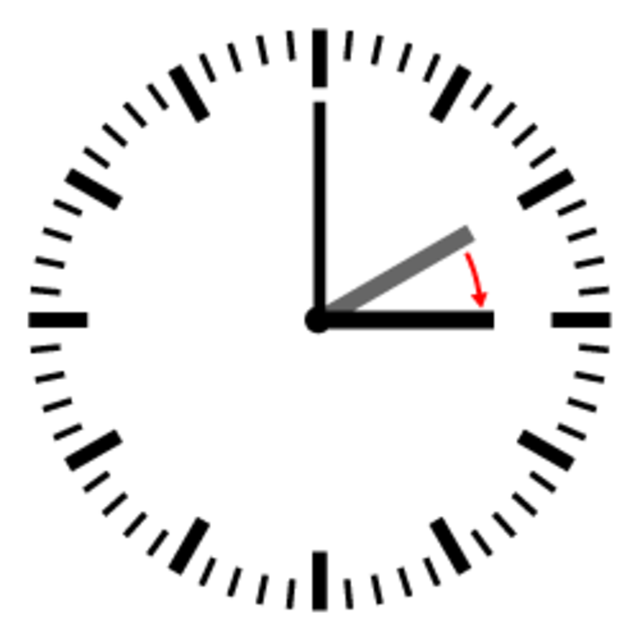
By Carol Tannenhauser
The headline contains all the facts and instructions you’ll need — except, no, it’s not a typo: “Daylight Saving Time” is correct, according to timeanddate, although Daylight Savings Time (with an “s”) is commonly used.
If you’d like to know even more about the practice, Britannica and a variety of other sources provided us with interesting and useful details:
- Daylight Saving Time was first suggested in a letter written by Benjamin Franklin in 1784.
- Several countries, including Australia, Great Britain, Germany, and the United States, adopted summer Daylight Saving Time during World War I to conserve fuel by reducing the need for artificial light.
- During World War II clocks were kept continuously advanced by an hour in some countries — e.g., the United States — and England used “double summer time” during part of the year, advancing clocks two hours from Standard Time during the summer and one hour during the winter months.
- In 1966, the Uniform Time Act made Daylight Saving Time consistent across the U.S, although states can opt out of it, as have Hawaii and Arizona.
- In 2007, after two earlier possibilities, the start date of Daylight Saving Time was changed in the U.S. to the second Sunday in March, and the end date to the first Sunday in November.
- On Mar. 15, 2022, the U.S. Senate unanimously approved a bill that would have made Daylight Saving Time permanent as of November 20, 2023, if approved by the House and signed by President Joe Biden. (It wasn’t.) Sen. Marco Rubio reintroduced the bill in March 2023, and it was sent to the Senate Committee on Commerce, Science and Transportation, but there has been no movement on it since.
- Some think the inaction is positive, as physical and mental-health risks have been associated with Daylight Saving Time. “Darker mornings and more evening light together knock your body clock out of whack,” wrote PBS, “which means Daylight Saving Time can usher in sleep trouble for weeks or longer. Studies have even found an uptick in heart attacks and strokes right after the March time change.”
- Get plenty of rest before and after the time change, recommends Cardiogram, and be aware and extra careful in the week following our “spring ahead.” “Fatal car crashes temporarily jump the first few days after the spring time change, according to a study of U.S. traffic fatalities,” PBS added. “The risk was highest in the morning, and researchers attributed it to sleep deprivation.”
To receive WSR’s free email newsletter, click here.









Daylight savings is stupid
Wouldn’t it make sense to give us more light in the evening! >> It adds a bit of happiness as we struggle to get ourselves back to live events in theaters and to music venues .. SO easy to stay home and continue to not enjoy what NY has to offer after becoming used to being victims of the virus!
We also have to get up in the morning and that is hard to do before sunrise. Kids going to school in the dangerous. We tried this in 1973 when Nixon didn’t revert to Standard Time in the winter because of the energy crisis. It was a failure and Congress reversed the decision in time for the next fall back.
I think we’re going to be forced to relive this. People forget how dark it is in the morning in the winter without standard time
yes! 100 percent! Congress needs to pass it! Most people are depressed in winter — it gets cold. we need more sun for both mental and physical well-being
Yes— we would not be tired if we just kept daylight saving time! Period. I am so tired of the American health experts telling us it’s bad. It’s only bad if we keep switching it! Why is it good? The days get darker in their own . They get dark when we turn the clocks back to 4:30. Pm. Why is their argument not medically cogent! 1) it gets darker on its own after summer — i believe til 5:30– What is the nonsense of now turning it back to 4:30? It is not healthier . More people going to work are making breakfast. Are inside all day and when they get home they might want to take a run, grocery shop etc in daylight .. We know vitiamin D3 only from the sun is advantageous to our health . When kids and working population is at work or school .. They don’t get the sun— most kids are in after school programs or sport these days— let them all have some sun. Going home in 4:30 pm darkness makes one want to eat, and watch tv and go to sleep. It helps with obesity — instead when it’s light they want to go for an early evening walk or run— see the sun set! No one can do this in the dangerous 4:30 pm darkness. People also suffer from SAD.. Most people— they need the sunlight . And their silly argument about accidents? People don’t travel ! Because you know it’s bad for your health— don’t go to europe or the east or west coast .. where there is already a time difference .. This is an old idea .. We need to keep daylight saving time — it’s better for our health- Exposure to more sunlight, vit d3 and more exercise .. People are happier when they return from work or school and can go out for a couple hours .. Next.. It is a fact that CRIME is down when it’s lighter longer .. I wish these so called health experts would get a life … and stop infringing on our lives .. and the amount of exercise and sunlight that is more vital to our well being! An hour makes no difference. It’s the change in time .. Do stop changing the clocks and give us some life saving extra daylight when we can enjoy it when home from work or school. This is old.. There is plenty of artificial lights being used by farmers if they need it and as well as in the morning .. We need it when we can enjoy it … More accidents because we keep changing it back and forth .. We need more sun at the end of the day .. Let’s get congress to vote to stay on this time … Unless the medical experts don’t want you to fly anywhere that involves a time change .. Their argument is ridiculous .. 🌞🌞🌞 most people are happier with longer daylight .. 🎈🎈🎈 we have one life .. why should we live in darkness at 4:30 pm.. In winter ..
I say just pick one and stay with it. I am completely messed up this morning!
no any other reason than to interrupt your rhythm, circadian rhythm that is.